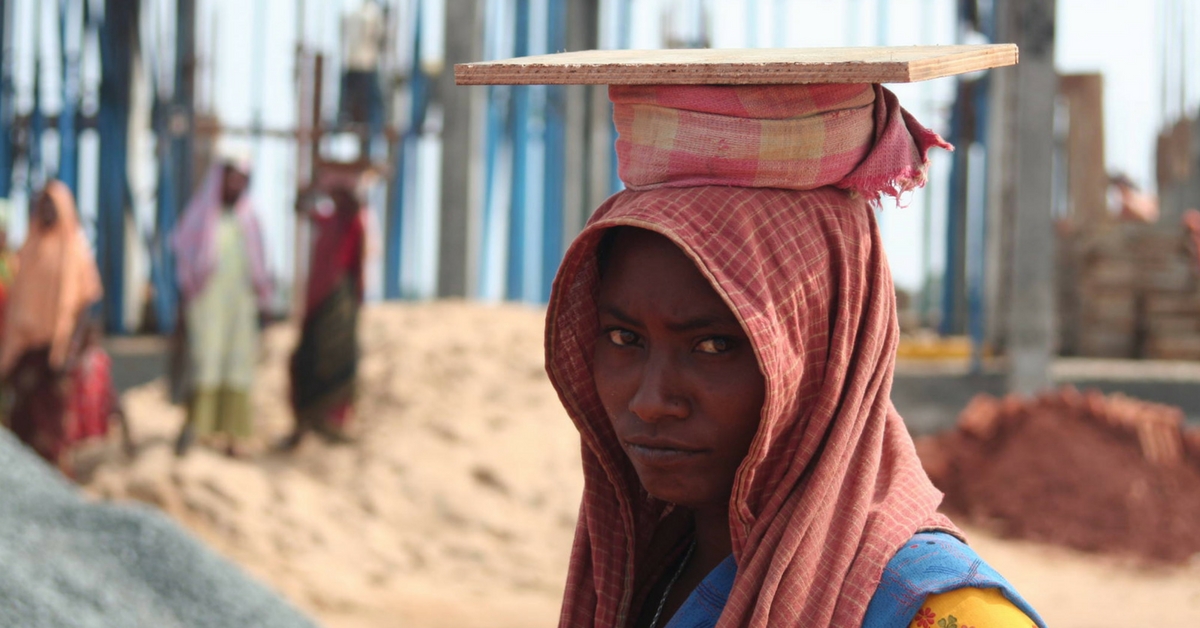Goa Sets Example, to Install Sanitary Pad Dispensers at Construction Sites!
Over 88% of Indian women and girls are forced to use alternatives like old cloth, rags, hay, dry leaves, sawdust and even ash during their menstrual cycles. This exposes them to dangers like skin allergies, infections and in some cases, even cervical cancer.

From a population of 1.3 billion, at any given time, on average, India has over 355 million menstruating women and girls. Among these, over 70% say their families cannot afford regularly buying sanitary pads.
In 2012, according to a study titled Menstrual Health in India, Country Landscape Analysis, over 40% of all government schools lacked a functioning common toilet, and another 40% lacked a separate toilet for girls.
Over 88% of Indian women and girls are forced to use alternatives like old cloth, rags, hay, dry leaves, sawdust and even ash during their menstrual cycles. This exposes them to dangers like skin allergies, infections and in some cases, even cervical cancer.
Many of these women and young girls come from the lowest rungs of society, where multiple factors like financial standing, social conditioning and the stigma around periods prevent good menstrual hygiene practices.
But there is some hope. The state of Goa has decided to help such marginalised sections of women by installing sanitary pad dispensing machines at industrial estates, construction sites and government-run education institutions.

The Department of Labour & Employment which will execute the same and hopes the initiative will help improve menstrual hygiene among these women.
The move is expected to be launched in April and chief minister Manohar Parrikar is expected to make a budgetary allocation in his Budget for 2018-19, reports the Times of India.
The decision was made on Thursday at a board meeting presided by the Minister for Labour and Employment Rohan Khaunte
Read more: Period of Change: Kerala RJ is Smashing Barriers Around Menstruation
“Dispensing units will be set up throughout industrial estates, high schools and places where children of these workers or the workers are directly working. There will also be incineration points. This will provide a lot of sanitation and give a sense of hygiene to the people,” Khaunte told TOI.
A final decision on the implementation of the scheme is pending as the government is yet to work out if it should provide women direct financial assistance or supply of sanitary pads directly to them every month.
Like this story? Or have something to share?
Write to us: [email protected]
Connect with us on Facebook and Twitter.
NEW: Click here to get positive news on WhatsApp!
If you found our stories insightful, informative, or even just enjoyable, we invite you to consider making a voluntary payment to support the work we do at The Better India. Your contribution helps us continue producing quality content that educates, inspires, and drives positive change.
Choose one of the payment options below for your contribution-
By paying for the stories you value, you directly contribute to sustaining our efforts focused on making a difference in the world. Together, let’s ensure that impactful stories continue to be told and shared, enriching lives and communities alike.
Thank you for your support. Here are some frequently asked questions you might find helpful to know why you are contributing?


This story made me
-
97
-
121
-
89
-
167











